
|
|
|
|
|
| |
|
|
|
SHIFT Newsletter March 2021:
|
| |
|
Gender & Power-relations
|
| |
|
|
|
| |
|
|
|
| SHIFT – Sharing Initiatives for Training is an Erasmus+ funded strategic partnership project, bringing together several cultural networks with the ambition to contribute to a better and more sustainable future as recognised in the UN Sustainable Development Goals (SDGs). SHIFT aims to develop training for cultural leaders on the topics of environmental sustainability, gender and power relations, inclusion, and cultural leadership. |
| |
|
|
|
|
| |
| This newsletter has been produced by IETM - International network for contemporary performing arts, leading SHIFT partner on the topic of Gender & Power Relations, and in collaboration with EMC, project coordinator. More information about SHIFT can be found on shift-culture.eu. |
| |
| Do you want to share your own initiatives on gender & power relations with us? |
| |
Contact Ása Richardsdóttir at
→ ietm@ietm.org |
| |
|
|
|
|
|
|
|
|
|
|
| |
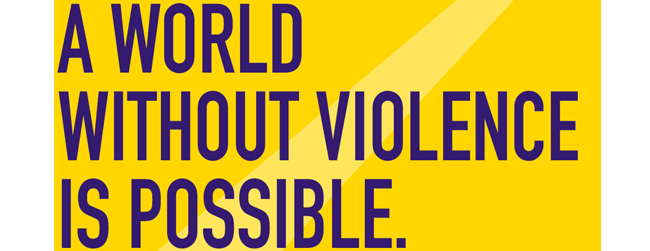
|
|
| The Gender and Power Relations topic encompasses a lot of complex issues, both in society and more specifically in the cultural sector. SHIFT partners decided to focus on sexual harassment in the culture and creative sectors. |
| |
| The global movement of #MeToo, which started in 2017, increased awareness and empowered employees across the globe to report sexual harassment and other inequalities in the workplace. #MeToo brought to the surface the vulnerability and a lack of effective protection mechanisms of anyone facing power abuse, regardless of age, class and gender. |
| |
| Numerous studies and extensive research made - before #MeToo - have for years cast light on the magnitude of harassment and gender-based violence in the workplace and called for structural and institutional changes, in many places in the world. It still remains to be seen whether the wave of empowerment brought by #MeToo will have a lasting impact on professional and societal culture. For that to happen, the leaders of the SHIFT Cultural Networks believe focus needs to move away from victims to structures. |
| |
| The SHIFT Gender and Power Relations Package will aim to draw light on solutions and good practices cultural structures, organisations as well as pioneering individuals have developed in the last year, to battle sexual harassment and empower those abused. Via qualitative research, mapping and production of a toolkit, the partners aim to provide networks and organisations with useful tools to strengthen their own inner strategies on the matter. |
| |
|
|
|
|
|
SHIFT GENDER PILOT WITH FOCUS ON ELIA
|
| |
|
|
|
| |
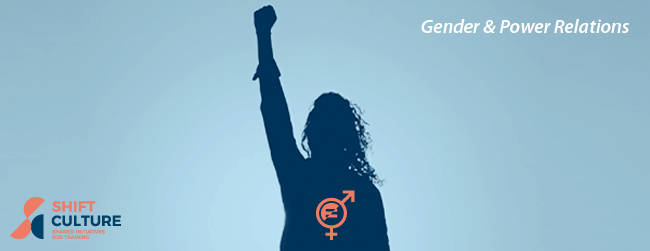
|
|
| To start the process of discovering how to approach the work within SHIFT on this highly-explosive subject, ELIA - European League of Institutes of the Arts and IETM decided to join forces in a pilot project. The pilot involved a survey conducted amongst ELIA members, in-depth interviews with a few key ELIA members and a seminar done in connection with ELIA’s Biennial Conference last November 2020. The pilot was made possible via the valuable contribution of Carla Delfos, former director of ELIA and founder of the Disorderly Women Alliance, and Fríða Björk Ingvadóttir, rector of the Iceland University of the Arts. |
| |
| The pilot exposed how complex the Power and Gender Relations topic is for arts universities to deal with, all the while highlighting how strong the need is for art universities and other cultural organisations to re-examine work practices and methodologies and jointly work on effectives tools to tackle gender inequalities, outdated power relations and sexual harassment and violence within our structures. |
| |
The seminar held on 17 November 2020 cast light on a few case studies and best practices being developed by ELIA members. The recording below presents two SHIFT topics, please start at 1:28:18 to dive directly in the Gender and Power Relations topic. The first part will be on Environmental Sustainability.
| | | | | | |
| |
|
|
|
|
|
|
| |

|
|
| According to the Policy Brief on Sexual Harassment in the Entertainment Industry, a new study published in November 2020 by the International Labour Organization (ILO), little has changed in the past few years. Sexual harassment remains a significant concern in the entertainment industry, which includes performing arts, music and other live performance sectors. The authors point out that in order to tackle violence and harassment “a more integrated approach is needed, encompassing international labour standards on employment and occupational safety and health”. |
| |
| ILO’s study makes several recommendations on how to deal with unequal power relations in the entertainment industry, address broader gender equality issues, improve knowledge about violence and harassment, address broader systemic issues and the need to teach leaders to respond to violence and harassment within the different sectors of the entertainment industry. |
| |
| The study concludes that employer and workers organisations need to work together in a coordinated effort. Individuals in this sector are particularly exposed to sexual harassment due to the sector’s structure and underlying gender imbalances. Moreover, the study notes that there is a persistent gender pay gap, and that job insecurity is higher for women, especially women of colour. |
| |
| One might wonder if a second wave of #MeToo is surfacing in several pockets of Europe and beyond. Recent cases in Denmark, Greece, Netherlands, Slovenia, to name a few, have revealed that victims of abuse seem less afraid to speak up, and use the most public places, such as live television shows to voice their experiences. |
| |
|
|
|
|
|
HARSH REALITIES AND USEFUL RESOURCES
|
| |
|
|
|
| |
|
|
| |
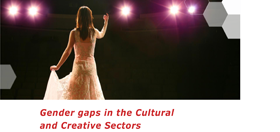
|
|
The EU Work Plan for Culture 2019-2022 selects gender equality as one of the five sectoral priorities for EU action. The European Expert Network on Culture and Audiovisual published in September 2020 a study on Gender Gaps in the Culture and Creative Sectors, where sexual harassment is one of the focal points. Its significant criticism is that current and systematic data on the issue is strongly lacking. The authors arrive at the conclusion that “contrary to the cool, informal, accessible and egalitarian reputation of the cultural and creative sectors, there are in fact more hidden hierarchies and power relations. The informality is a blessing and a curse it seems, as have been evinced in previous sections. Sexual harassment happens in the cultural and creative industries, and seems to be more prevalent in these sectors than in other economic sectors.”
| | | | | | |
| |
|
|
|
|
|
|
| |

|
|
The EU´s European Research Area and Innovation Committee published a study in June 2020 on Sexual Harassment in the Research and Higher Education Sector: National Policies and Measures in EU Member States and Associated Countries.
The study reveals that “#MeToo knowledge and acknowledgement in several Member States and Associated Countries remains weak” and that “gender-based violence is, with a few exceptions, an unrecognised issue”. It also reveals that “a cohesive infrastructure to tackle gender-based violence is missing”, that “no country has done sufficient work to combat gender-based violence”; and that “only a few countries have introduced cohesive measures and activities that may be able to achieve institutional change.” Higher Arts and Culture Educational institutions are within the realm of the study.
| | | | | | |
| |
|
|
|
|
|
|
|
|
|
| |
|
|
| |
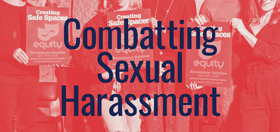
|
|
FIA, Federation of International Actors, has worked extensively on commissioning and compiling resources for its members and beyond to combat sexual harassment. Their manual published in January 2020, is available in English, French and Spanish and is a very useful tool for organisations in the culture sector to use, when planning their own campaigns and actions. In addition, FIA has a webpage filled with many useful resources, inspirations and good practices, such as surveys, codes of conduct, campaigns and Tools, Tips and Tricks of the Trade. We believe that these FIA resources, created for the performing arts, can be equally useful for other sub-sectors in our field.
| | | | | | |
| |
|
|
|
|
|
|
| |

|
|
RIKK - the University of Iceland Institute for Gender, Equality and Difference, published a research in November 2020 on sexual and gender-based harassment and bullying in the Icelandic Performing Arts. Researchers circulated a survey among all members of the performing arts labor unions in Iceland. The response rate was 42%, with 59% of them being from female members and 41% from male members. The results show that 52% of professionals have been sexually harassed in connection to their work or studying. 60% of those are female, 40% are male. Women are much more likely to consider their experience as “serious”. Only women report on rape or attempted rape.
| | | | | | |
| |
|
|
|
|
|
|
|
|
|
| |
|
|
| |
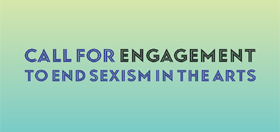
|
|
Engagement is an artist-led movement tackling sexual harassment, sexism and abuse of power in the Belgian arts field. Engagement approaches sexual harassment and gender-based violence through the lens of intersectional feminism. Engagement has worked on several tools and guidelines which we believe can be useful for the cultural sector at large.
| | | | | | |
| |
|
|
|
|
|
|
| |
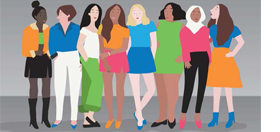
|
|
Voices of Culture, which aims to enable a structured dialogue between the European Commission and the culture sector, published in February 2020 a brainstorm report which, among other topics, put sexual violence in focus and lists several recommendations for the European Union and the European cultural and creative sector to ensure enduring change.
| | | | | | |
| |
|
|
|
|
|
|
|
|
|
| |
In 2018, Sweden set up a Commission on Sexual Harassment in the Performing Arts, in the aftermath of #METOO. This Commission published a report, An Opportunity to Create Change, which mapped and analysed quite extensively the situation in the Swedish performing arts and the legal framework protecting victims, and submitted proposals for intervention. In addition, extra material was produced in order to facilitate the discussion of the report and the topic of sexual harassment.
| | | | | | |
| |
|
|
|
|
|
|
|
|
| |
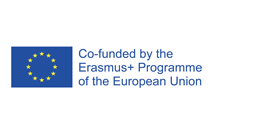
|
|
| The SHIFT Project is co-funded by the Erasmus+ programme of the European Union. |
| |
|
|
|
|
| |
| The EMC is a regional group of the |
 |
|
| The EMC is supported by |
 |
|
|
|
|
|
|
|
|
| |
| |
This communication reflects the views of the EMC only and the European Commission cannot be held responsible for any use which may be made of the information contained therein.
|
|
|
|
| |
You have received this newsletter because your are on the mailing list of the European Music Council. If you no longer wish to receive any emails from the European Music Council, please reply to this email writing "unsubscribe newsletter" in the subject line.
|
|
|
|